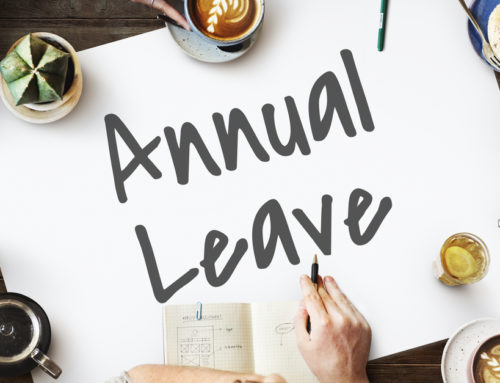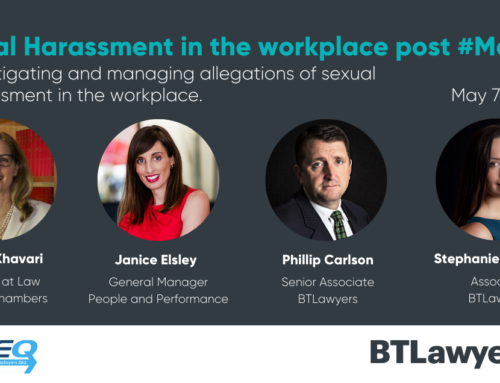By John Salter
“We would have liked to have seen a more ambitious agenda by the government over the last three years on industrial relations, there’s no doubt about that.”
This is a quote from Jennifer Westacott, Chief Executive of the Business Council of Australia (BCA), to Australian Agenda in June 2016. Her belief is that Australia, and her member base, needs some serious industrial relations reform.
Is she right?
After representing employers for over 30 years, I believe she is. The system of EBA’s for the vast majority of employers, and to a certain degree their employees, has become a tiresome ritual that creates unnecessary angst and has essentially outlived its usefulness.
But to understand why reform is really needed, we need to first look at where we’ve come from- and then what we can do before reform takes place.
The history of EBA’s and Industrial Relations in Australia
The terms Enterprise Bargaining Agreements or ‘EBAs’ first entered the Australian employment vernacular some 25 years ago. Put simply, it’s a system designed to ensure that the majority of terms and conditions of employment are set at an enterprise or single employer level, as opposed to being centrally determined at industry, sector, State or occupational level.
In the early 1990’s it was described as a very bold component of economic reform. Initially it succeeded, and in some businesses spectacularly so, primarily because of the very poor base from which it started. The sheer weight of regulatory complexity and labour inflexibility which existed at it’s inception almost ensured some degree of immediate improvement in productivity. This was because of the uniquely Australian industrial Award system, which has somewhat surprisingly survived, despite being anathema to the concepts sought to be achieved. Indeed, there are still 122 so called modern Awards – far too many, even if a persuasive argument for their retention can be supported at all.
Collective enterprise bargaining was only ever intended to apply to lower to medium level employment, or where workers were paid in accordance with industrial Awards. Whilst many would be surprised even today at the upward reach of Award coverage, particularly in sectors like health services, it was never designed to replace to any significant extent situations where employees and their employers reached individual arrangements based mainly on labour market supply and demand, such as the ‘over Award’ payment concept.
The undercurrent for change
Much has changed within the world and the Australian economy in the past 25 years and many would argue that our IR system has dramatically failed to keep pace with significant change impacts, particularly those generated by globalisation. Despite this, the stated policies of all the major political parties are to retain the system, at least fundamentally. And if past election results and opinion polls are any guide, the majority of Australians don’t appear to support a total or even substantial dismantling of what is now called the Fair Work system. It seems that to most of us, retention of legislated safeguards at work falls within the admirable Australian ethos of a ‘fair go all round’.
Yet there is little doubt the sheen of the Fair Work system is fading, particularly for employers but also employees to a large degree. According to the Australian Bureau of Statistics, in May 2016 approximately 40% of the Australian non- managerial workforce has their conditions set by a formal EBA, but that figure is starting to decline – and the pace of decline is rapid.
Chaos in Retailing and for employers of Queensland Apprentices
A perfect example of this growing discontent is the fiasco that has beset Coles Supermarkets, a division of Wesfarmers of which Westacott is a Director. Coles has 77,000 employees and for many years has negotiated and finalised national agreements to regulate the work of its retail and distribution staff. Its 2015 agreement was approved by the Fair Work Commission after over 90% of the workforce voted in favour of it and it was supported by the main Union Coles deals with – the SDA.
However, a group of workers who did not agree subsequently lodged an appeal against that approval on the grounds that they and those like them on unusual casual rosters were disadvantaged when compared to the General Retail Award. And they won. The subsequent attempts to unscramble a sizeably scrambled egg has resulted in a field day for lawyers, but certainly few others.
In another similar development, global Swedish retailer H&M had an EBA painstakingly negotiated throughout Australia rejected by FWC, despite providing extensive enforceable undertakings. These mainly concerned the number of hours employees (casuals make up the bulk of the workforce) could be rostered to work on weekends in circumstances where retail trading hours continue to be liberalised. The challenges faced by employers when they encounter a bewildering array of complexities in navigating the statutory Better Off Overall Test (BOOT) is becoming a significant disincentive to even attempting the exercise.
Another massive shock wave emerged from Fair Work recently with indications that hundreds of employers may owe millions of dollars in back pay to apprentices – not through any fault of their own, but because of a highly technical outcome of the law regarding transition from old Industrial Awards to new Modern Awards, which came into being some seven years ago.
Will reform happen?
The fundamental problem with the system is that it is supposed to delegate the responsibility for setting wages and conditions down to the enterprise level whilst retaining rights, obligations, protocols and processes of a by gone era when outcomes were determined at a higher more national level amongst collective organisations – Unions and employer groups. The hybrid nature of its detail are ever expanding grounds for unintended consequences, which can creep up and slam employers.
The system will change – there are far too many ridiculous outcomes emerging for this to not occur. In the meantime, employers are left to grapple with its vagaries. But there are ways to effectively and productively do that without creating angst or disenchantment within your workforce.
In the meantime, what can employers do to cope with the Fair Work system?
Employers should take stock and re-examine all their employment arrangements – particularly any collective agreements they have – with a view to exploring different future approaches.
If you already have an existing EBA, and particularly if it has passed its nominal expiry date, very close consideration needs to be given as to whether it is worthwhile renegotiating and renewing it, or seeking to terminate it and rely instead on Award conditions as the minimum entitlement of your employees.
If you would like to get some ideas on how you can restructure or review your EBA, contact John Salter for a free consultation on john.salter@btlawyers.com.au
If you’re interested in receiving more insights and ideas from John on HR/IR related topics, you can sign up to our newsletter here.






